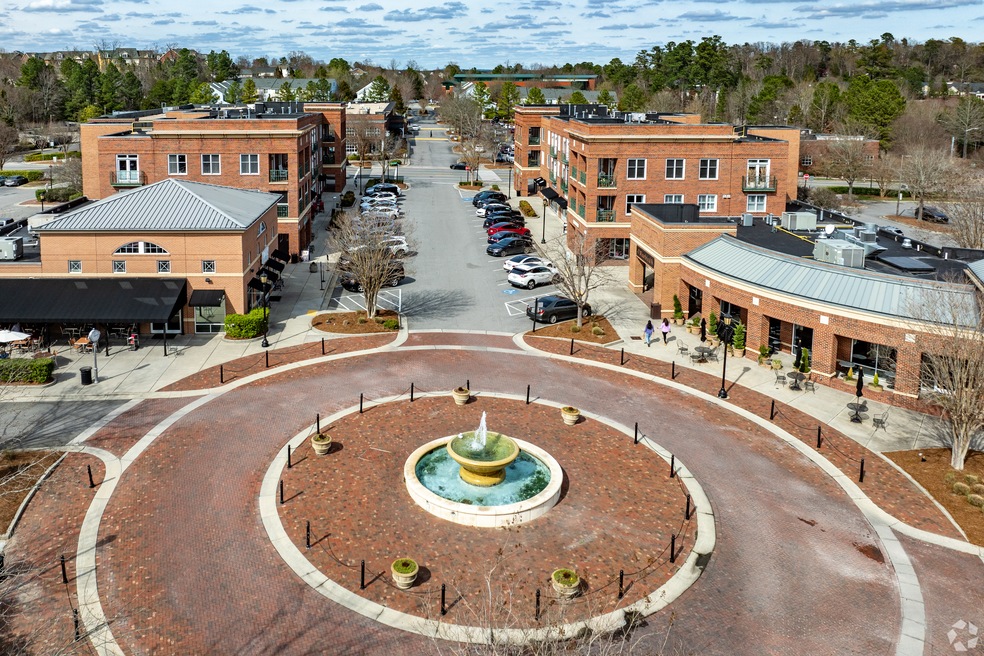If a pair of North Carolina state senators has their way, it will be possible for someone to build housing anywhere where stores, offices and other commercial businesses are allowed.
That could be a big change for some cities, towns and counties since local governments in North Carolina and most other states often segregate homes from businesses through their zoning codes. Senators Tim Moffitt and Julie Mayfield suggested a different path last week when they introduced Senate Bill 499, which they titled the “Allow Housing Near Jobs” law.
Moffitt, a Republican, and Democrat Mayfield have also co-sponsored three other housing bills in the 2025 legislative session. Those include proposals to allow accessory dwelling units and buildings with up to six residential units in areas where only single-family homes are allowed. The senators also want to permit apartment buildings up to eight stories tall with a single set of stairs — typically a second stairwell is required for projects more than three stories.
Moffitt and Mayfield both represent parts of the Asheville area in the western part of the state that suffered significant damage to housing and commercial districts from Hurricane Helene in October. The senators could not be immediately reached to comment on whether their bills were motivated by post-storm rebuilding efforts.
The bill to allow homes in commercial areas would have an impact across the state, Steven Webb, director of legislative affairs for the North Carolina Home Builders Association, said in an interview. He noted the legislation specifically allows converting former office and other commercial buildings to housing.
“We’re sort of at a tipping point where it’s gotten so expensive that you kind of have to build some housing,” Webb said. “We have a lot of prime commercial real estate around Raleigh [the state capital] that would be desirable for places to live.”
State needs over 400,000 homes
The state needs more than 400,000 for-sale homes in the next five years, according to a 2025 report by the home builders association, NC Realtors and the NC Chamber Foundation. The median single-family home price in Asheville in February was $550,000, according to Homes.com data. In Raleigh, it was $470,000, and in Charlotte, it was $450,000. Prices have climbed between $15,000 and $25,000 over the past year in the three cities, with the largest increase in Asheville.
Mixed-use development, or the practice of locating housing in proximity to businesses, is already popular in many cities, noted Scott Mooneyham, a spokesperson for the North Carolina League of Municipalities. He questioned the need for Senate Bill 499.
“By and large, in the places that have potential for growth, I don’t think there would be much pushback from a city or town to this type of development," Mooneyham said. “But they want it to be well-thought-out and for it to keep the community attractive.”
Other states are also considering making it easier to build housing in business districts. House Bill 5800, pending in Rhode Island’s legislature, would require cities and towns to permit people to live in at least some commercial areas. The New Hampshire League of Municipalities is opposing a proposal to allow homes in commercial areas in some of that state’s larger cities, arguing they should be separated for health and safety reasons.
In some places allowing housing in commercial zones could threaten a town’s limited stock of land designated for commercial and industrial development, Randy Rossi, executive director of the Rhode Island League of Cities and Towns, said in an email. Other places may have limited infrastructure like water and sewer capacity for new housing.
“One-size-fits-all housing solutions can have a negative effect on communities,” Rossi said. “With that being said, House Bill 5800 strikes a balance between retaining commercial and expanding housing.”
While the current trend is to open up commercial areas to housing, a bill in Washington state proposes the opposite. It would allow corner stores, cafes and other small businesses within residential neighborhoods.


